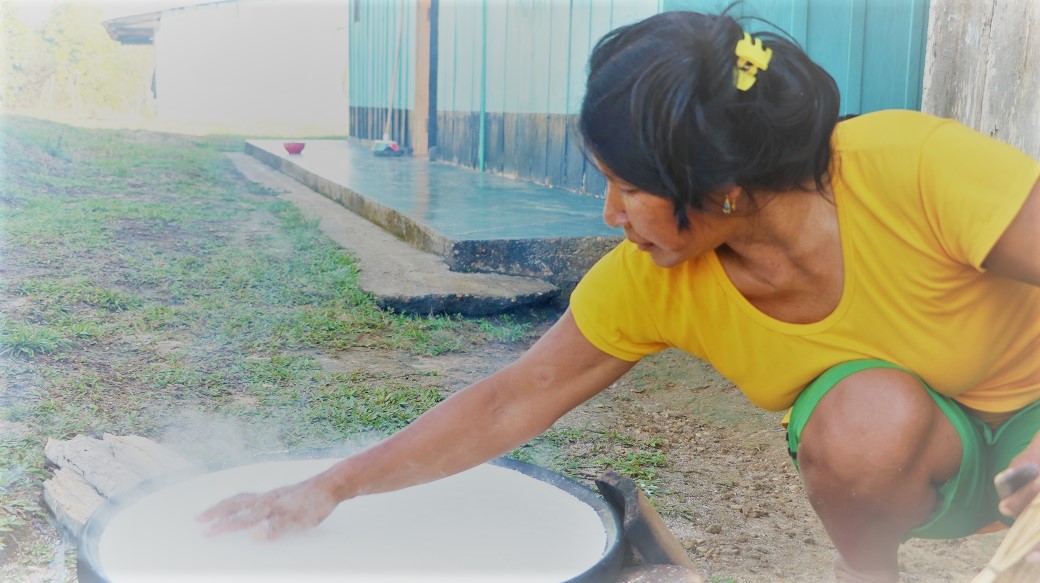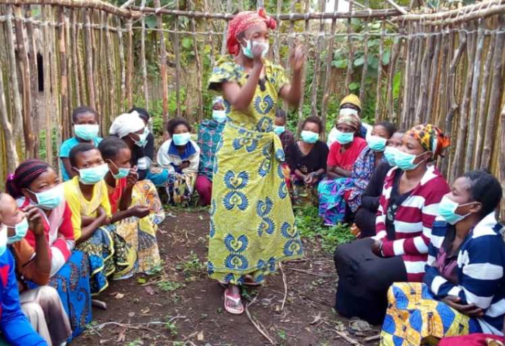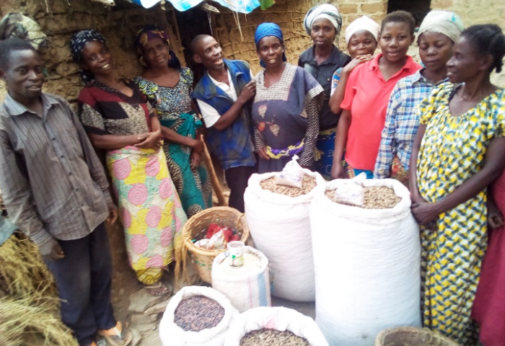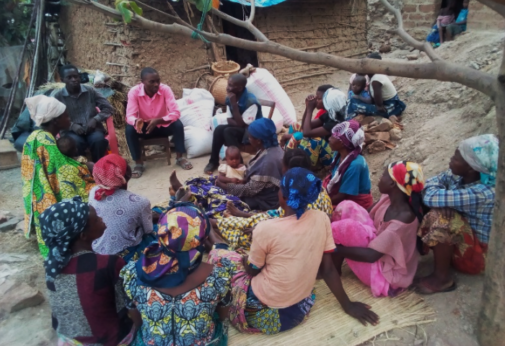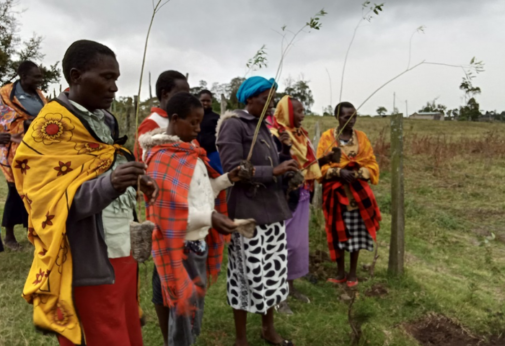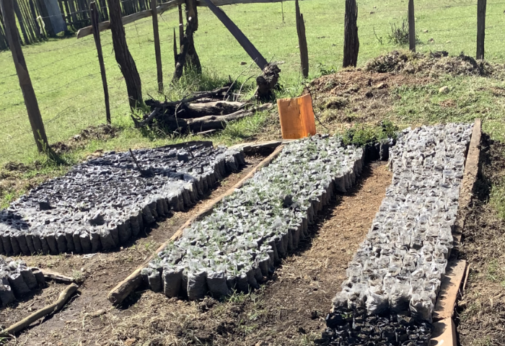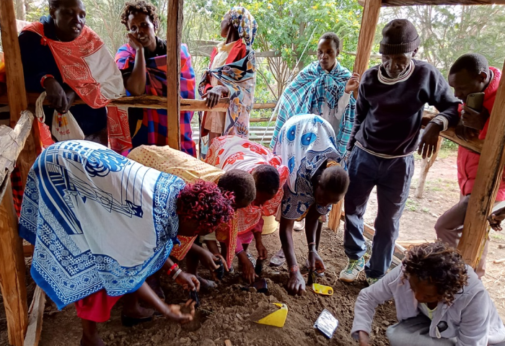Gender justice at the heart of forest conservation for Indigenous women in Africa
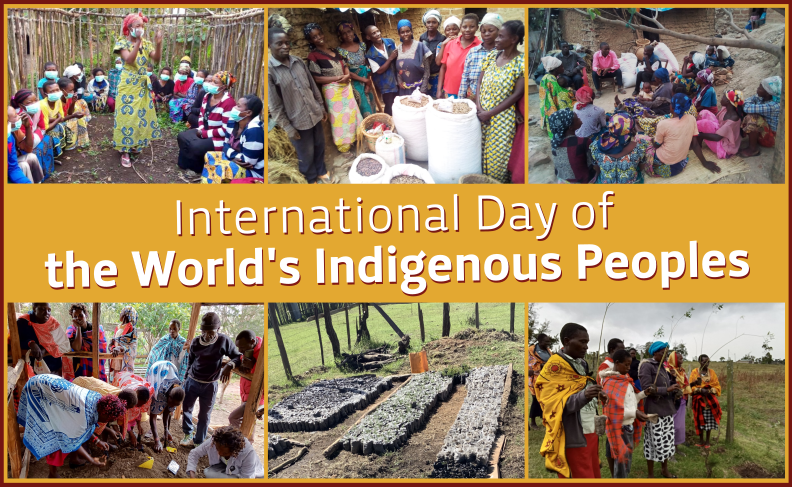
Capacity-building projects in DRC and Kenya show the importance of women’s rights to protecting communities and ecosystems
Despite the challenges that the pandemic has brought, over the past year GFC member groups have continued their on-the-ground work to support Indigenous communities and women’s rights groups to conserve their forests.
On International Day of the World’s Indigenous Peoples we’re highlighting the work of the Indigenous Information Network (IIN) in Kenya and the Programme Intégré pour le Développement du Peuple Pygmée (PIDP-Kivu) in DRC.
With the support of the Women2030 program and GFC’s Gender Justice and Forests Campaign they’ve been running capacity-building projects with Indigenous communities based on the principle that securing and protecting women’s rights is key to sustainable livelihoods and a healthy environment.
PIDP works with Indigenous Pygmy communities on the edges of Virunga National Park in Eastern DRC. Strict conservation measures prohibit access to the Park, meaning that local residents must find alternative ways to sustain themselves and generate income. Social solidarity groups, such as the one pictured, focus on training to build skills that can empower Indigenous women and girls. As well as helping to fight poverty, this approach encourages good governance and sustainable management of forests and other natural resources, which in turn increases climate resilience.
Photo: PIDP
PIDP also works to enhance food sovereignty by supporting communities to increase their agricultural production, and particularly women members of the communities, who have greater responsibility for growing food and preserving local seeds. They do this through training and skill-sharing on biodiversity-enhancing agroforestry and agroecology, which complement their traditional agricultural practices. They also help to establish seed banks in different communities, such as the one pictured, which ensures that local varieties are conserved and that there are enough seeds for all the farmers that need them.
Photo: PIDP
With a precarious security situation, wide-spread human rights abuses, increasing violence against women and more recently a state of emergency due to COVID-19, conditions could not be tougher for PIDP, its partners and the communities they work with. Often just providing a space for women and men to come together to discuss women’s rights, sustainable agriculture and community conservation is an important step. Their emphasis on skill-sharing and training women trainers in the communities ensures that the impacts of these sessions are long-lasting.
Photo: PIDP
In Narok County, Western Kenya, IIN trains women community leaders to run projects in their own communities aimed at eradicating poverty and feeding their families. They also bring women and men in communities together to understand women’s rights and increase womens’ security through ending discrimination, female genital mutilation and early and forced marriages. The Indigenous women pictured are demonstrating how to plant trees that they have grown in their own nurseries.
Photo: Paran women
One of the income-generating activities that IIN focuses on is establishing tree nurseries and selling seedlings alongside small-scale farming practices, such as keeping poultry and maintaining kitchen gardens. They also train women in organic food production and how to store food for long periods of time in order to increase their food security throughout the seasons.
Photo: Paran women
With the Kenyan climate becoming increasingly dry and rain patterns less predictable, IIN’s capacity-building sessions also focus on sharing skills required to farm in these dry conditions. Indigenous women have a tremendous amount of knowledge about their land and how to sustain themselves on it, and sharing this knowledge between communities increases their resilience. This is especially important when most women don’t own the land they farm, even though they play such an important role in feeding their families and communities.
Photo: Paran women
Please share our photo essay with your friends and colleagues. Here are some sample posts that you can use and adapt. Thanks!
🎉 Today we celebrate #IndigenousPeoplesDay by showcasing how GFC member groups continue to put #GenderJustice at the heart of forest conservation for Indigenous women in Africa
👀 Check out our new photo essay 👇 http://ow.ly/IMYm50FMOLB
#LeaveNoOneBehind
On #IndigenousPeoplesDay we’re highlighting the work of @IinKenya and PIDP-Kivu/DRC and their capacity-building projects that show how securing & protecting women’s rights is key to sustainable livelihoods & a healthy environment 👇 http://ow.ly/IMYm50FMOLB
PIDP in DRC works with Indigenous Pygmy communities excluded from Virunga National Park to find alternative ways of sustaining themselves & focuses on training to build skills that empower Indigenous #women & girls. Find out more at http://ow.ly/IMYm50FMOLB #IndigenousPeoplesDay
@IinKenya trains women leaders to run projects in their own communities aimed at eradicating poverty & bringing together women & men to understand women’s rights and increase women’s security. Learn more at 👇 http://ow.ly/IMYm50FMOLB
#IndigenousPeoplesDay
Facebook & Instagram
Today we celebrate #IndigenousPeoplesDay. We are highlighting how, despite the challenges that the pandemic has brought, GFC member groups have continued to work with Indigenous communities to put gender justice at the heart of forest conservation in Africa.
Check out our new photo essay and the work of the Indigenous Information Network (IIN) in Kenya and PIDP-Kivu in DRC who have been running capacity-building projects with Indigenous communities based on the principle that securing and protecting women’s rights is key to sustainable livelihoods and a healthy environment http://ow.ly/IMYm50FMOLB
For more information about GFC’s work on Gender Justice and Forests please see our campaign page.

